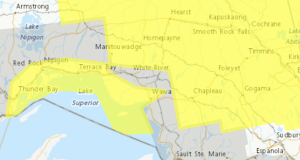The newly released Ontario 2020 budget sets a strong course forward for economic growth and recovery, but there is little in it that addresses the real needs of seniors.
While there is a marked increase in health care investment and a promise to improve long-term care over the next few years, C.A.R.P.—A New Vision of Aging (also known as the Canadian Association of Retired Persons) worries that the immediate needs of older adults were pushed to the background. Glaringly, the budget lacks a plan to address the province’s lack of accessible home care and community care services, which are vital to allowing seniors to age safely in place.
“What we saw was a strong focus on long-lead economics to the exclusion of real people at immediate risk,” says Bill VanGorder, Chief Policy Officer at C.A.R.P. “We’ve put forth a strong agenda of shorter term actions that would meaningfully improve the lives of seniors in Ontario and it’s disappointing to see so few of them reflected in this budget.”
The government is investing $7.5 billion in health care, an increase of 15%, which includes continued funding for flu vaccines, support for front line workers and caregivers and $2.5 billion more spent on hospitals.
In the urgent area of long-term care, there is a commitment to build 30,000 beds in the province and carry forward the wage increase for PSW’s, as well as earmarking $11 million for improving infection control protocols. A total of $783 million is being spent on the pandemic response in care homes. The previously announced commitment to 4 hrs of care per resident was also mentioned although, frustratingly, with no real implementation plan and a glacial timeline of several years.
What was missing from the budget were C.A.R.P.’s urgent calls for shorter-term tangible actions to protect vulnerable residents in care homes, including:
- Requiring long-term care homes to install cameras in medication rooms
- Standardized protocol for autopsies performed on the elderly
- Requiring long-term care homes to provide ongoing training to staff about their obligations to report instances of abuse and neglect, and enforce policy creation and adherence standards within care settings
- Funding and requirement of dementia care training and sensitivity training for staff who care for residents with dementia
- Investment in technology and innovative approaches to provide better and more effective care
Also noticeably absent were our demands to:
- Deliver on the commitment to end hallway medicine
- Fully fund and improve access to the best-in-class vaccines for shingles and pneumonia
- Increase protection for defined benefit pensioners to protect the retirement security of Ontarians
C.A.R.P. was pleased to see a proposal for a Seniors Home Safety Tax Credit, a 25% credit on up to $10,000 in costs on home improvements and renovations to help seniors age in place. The government says this credit will cost $30 million and help an estimated 27,000 seniors. However, this won’t be nearly enough to keep most people at home.
“A maximum $2,500 refund on a $10,000 home renovation project isn’t going to be enough to keep the average person safely at home as they age,” notes VanGorder, concluding that a one-time tax credit “can’t take the place of a true home and community care strategy.”
At the community level, the budget includes a $5 million investment in the Ontario Community Support Program and $3.1 million for Active Living Centres. C.A.R.P. applauds the restarting of the previously cancelled Age Friendly Communities Program, which has been proven to enhance the dignity and quality of life for older people across the province.
“No one can fault the enhancement of community supports,” says VanGorder. “But they’re only part of the solution. Real investments are needed in the key areas we’ve outlined to truly protect the rights and dignity of our seniors.”
As Ontario plans its recovery, C.A.R.P. will continue pressuring the government to support our older population, not just employers and big business.
After all seniors have contributed, and continue to contribute, to our province it’s the least they deserve.
SOURCE – Canadian Association of Retired Persons
- Thrift Shop Thanks the Community - February 24, 2026
- Bus Cancellations (Wawa, White River & Dubreuilville) - February 24, 2026
- Chiefs of Ontario Urges Immediate Action on Highway Safety After String of Fatal Collisions - February 23, 2026
 Wawa-news.com Local and Regional News
Wawa-news.com Local and Regional News

